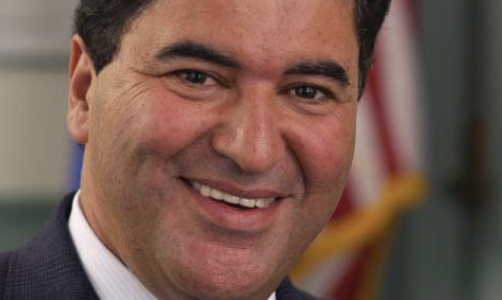Why Good Science Resists Characterization
“Science is an adventure; it’s the human search for knowledge and new ideas that can better humankind.”
Published December 1, 2011
By Marci A. Landsmann
Academy Contributor

Science is a discipline that whittles the abstract into clear and precise terms. So it might seem odd, at first, that Elias Zerhouni, former director of the National Institutes of Health and esteemed scientist, takes issue with certain characterizations.
“I don’t like to call something, ‘basic science’ or ‘translational science,’” says Zerhouni, a member of the Academy President’s Council. “It’s either good science or bad science. I don’t think we should characterize any type of science. Science is an adventure; it’s the human search for knowledge and new ideas that can better humankind. To pigeonhole types of science is, in my view, not beneficial.”
Definitions can create barriers, says Zerhouni. And he has spent his life stepping over such lines, first in academia at Johns Hopkins, then at the National Institutes of Health, and now in private industry in his recently assumed role as president of global research and development at Sanofi-Aventis.
In the early days of Zerhouni’s career as a radiologist at Johns Hopkins, he recalls not being able to secure NIH funding for his own research, because it didn’t fit neatly into a single disease process or under the purview of one single NIH institute. It took private industry funding to make his proposed research path—which years later led to imaging technologies that could show the heart in three dimensions and help clinicians decipher between cancerous and noncancerous nodules in the lungs—a reality.
Funding Reform
Zerhouni got the opportunity to make changes in the way the NIH chooses and awards research grants when he was appointed NIH director. He assembled a multidisciplinary team and a “Roadmap for Medical Research,” which isolated areas of science that would most benefit from cross-collaboration. The NIH Reform Act of 2008 established the NIH’s Common Fund, specifically for research that involves at least two of the 27 institutes in the NIH. In addition, it also set up funds for the Pioneer Award, which supports individual scientists of exceptional creativity who propose pioneering, and possibly transforming, approaches to major challenges in biomedical and behavioral research, despite not fitting neatly into a single disease category.
“You need a diversity of approaches,” Zerhouni says. “Sometimes funding agencies use a one-size-fits-all approach, which doesn’t help the real nature of science, which can go from the proverbial single investigator in the lab doing fundamental observation…to having the ability to put together teams to understand computational biology and bioinformatics. So in my view, the funding agency should reflect the realities of science and not the other way around.”

During his time at the NIH, Zerhouni encouraged further collaboration between scientists by creating multi-principal investigator grants, which allowed each scientist on a project to have lead investigator status. “Under a single lead investigator system, everybody else would be secondary. Well, that, in some way, discourages collaboration because everyone wants to be recognized in their own field as the top scientist.” The multi-PI grant gave scientists equal billing to contribute to the scientific problem at hand—and to converge in the same way as science does.
Matter of Perspective
Zerhouni attributes his success, in part, to his own unique background. Algerian-born, Zerhouni came to America when he was 24, after securing a residency at Johns Hopkins. He quickly learned the role perspective can play in the world of medicine.
“I think maybe part of my ability to succeed here is that I can bring a viewpoint that many people feel is sometimes surprisingly different and constructive in showing there is a different way,” says Zerhouni. “I think being an immigrant enriches the mix.” He applauds the U.S. for welcoming scientific immigrants and their contributions, pointing out that science is the great peacemaker.
Zerhouni cites the fact that 30% of all Nobel Peace Prizes in Medicine have been won by immigrant Americans. “No country has all of the talent to overcome its problems and that’s why I think science has to be global, it has to be without artificial barriers, and we should encourage collaboration and self-assembly wherever it comes from, provided that it is good science.”
Marci A. Landsmann is a medical writer in Philadelphia.
